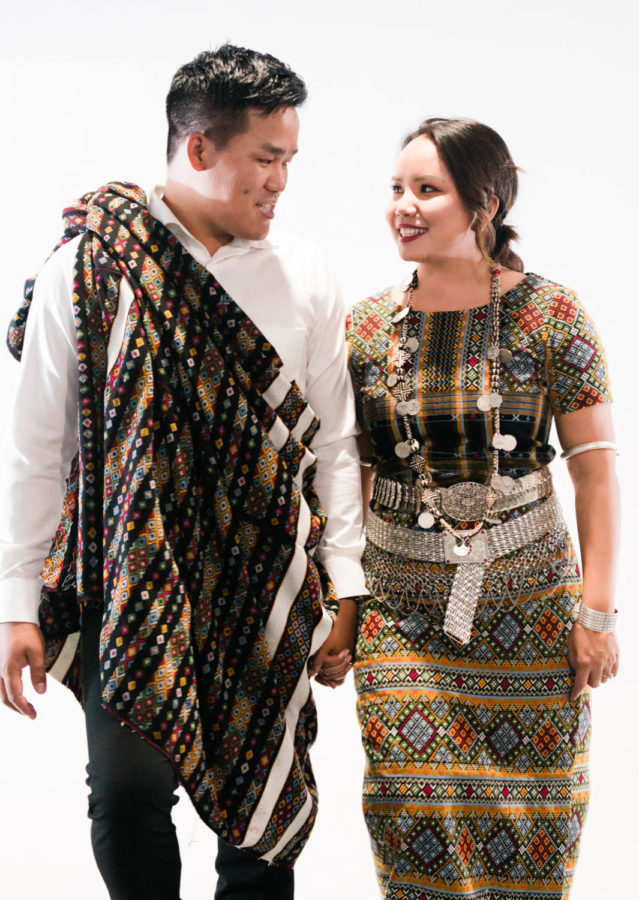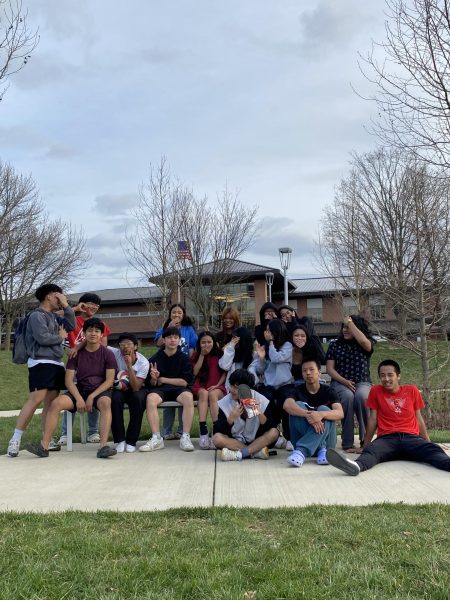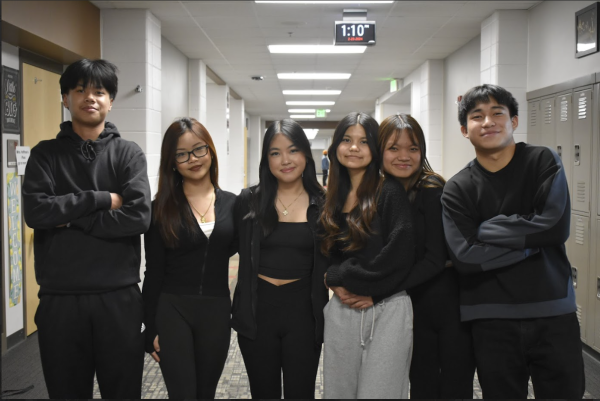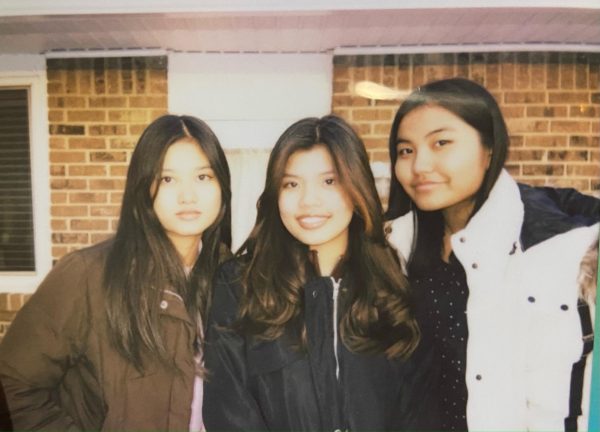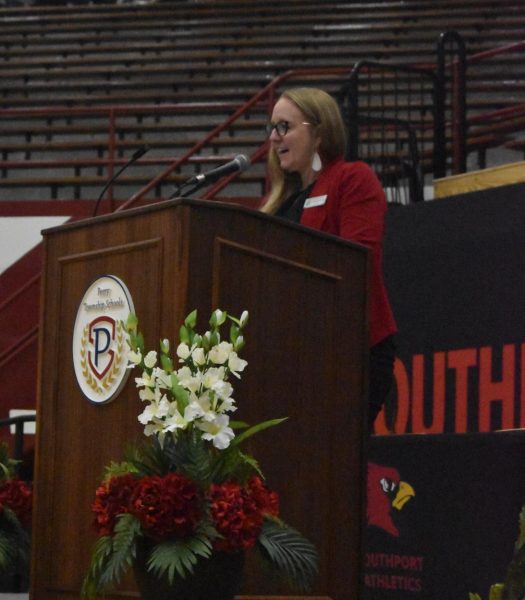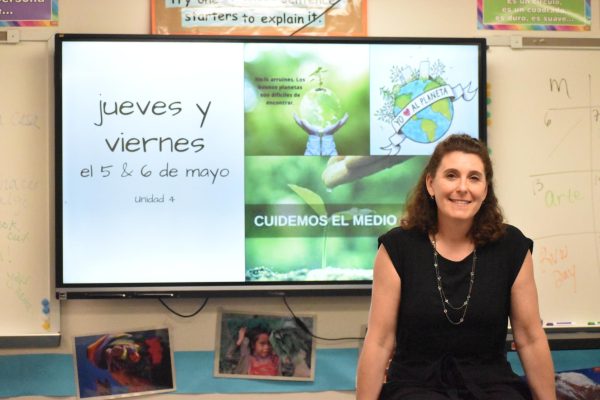Keeping traditions alive
Science teacher integrates her culture into her environment
Science teacher Miriam Ling takes traditional wedding photos with her husband. She also had an American wedding dress.
Science teacher Miriam Ling studied in a school environment where she could not focus due to multiple disrespectful students ever since she came to the U.S. On some days, she would come home in tears because she was unable to learn at all.
The disrespect from the students was not the only thing she was surprised at. She realized that America is more lenient on behavior and subjects like dating. She saw people having relationships in high school, which is considered as taboo in Myanmar because it is seen as more appropriate to focus on education. When coming to the U.S., Ling made it a priority to follow her traditional values from Myanmar.
“I don’t want my children to forget where they came from,” Ling said.
The morals and values that were expressed in the West differed from how she was raised in Myanmar. In the Chin community, respect to the elderly is required, and dating is preferred after the establishment of a stable life or in college. According to her, if an adult finds out one is dating then they will reprimand you focus more on your studies.
Ling was 16 years old when she came to New Bern, N.C. with her parents and two younger siblings. Despite not living around many Chin people, she was around Karen, Korean and Burmese people with the same values on education, family, and relationships.
She cared about her education because her parents came here to give her and her siblings a better life even though they had a limited vocabulary in the English language.
She never felt left out from dating because her mo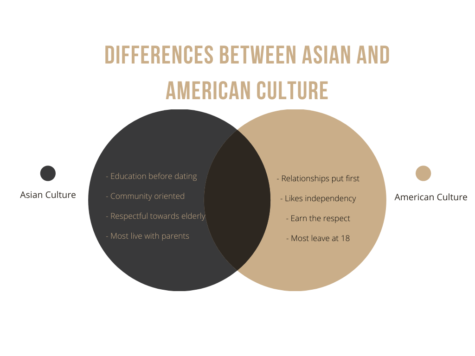 ther explained to her that she did not need a boyfriend during high school. She was required to focus on her education.
ther explained to her that she did not need a boyfriend during high school. She was required to focus on her education.
“I´m the type of person who would not date for fun… (I) date to marry.” Ling said.
Ling met her husband, Van Ling, after receiving her Bachelor’s degree in Biology in 2016. She was already friends with his sister, and met him at a church event which brought Chin people around the nation together.
He lived in Florida, so their relationship was long distance. In the beginning, Ling did not believe that she would marry him. However, as she started to get to know him, her mind changed.
Sui Tial, math teacher and coworker of Ling, completely agrees on the subject of not putting education on hold for a relationship. She feels the best time to get married is after college and after one knows the person for a prolonged period of time. Tial believes that one should always respect adults even if they are strangers. For example, she explained that it is part of their culture for the students to not raise their head to an adult.
“One of the teachers, I never seen his face before when I was in ninth grade,” Tial said.
Both Tial and Ling came to the U.S. at an older age which has kept their reminiscence of Chin culture. Because a majority of Chin students at SHS came here at an early age, Tial feels that they were integrated into the negative American culture.
Ling wants to make sure that her kids are still able to keep in touch with their culture and only receive the positives of American culture while living in the U.S.
The Chin community is very community oriented because it is part of the culture to help other Chins when a family member has been born or has passed away. The members help other Chin people in these situations by cooking, cleaning and giving support. Their religious congregation brings them all together too.
“Do what you can to help out other Chin people,” Ling said.
Ling´s husband proposed to her in December 2019, but their wedding was moved to March 2021 due to COVID-19 restrictions. The wedding ceremony took place in N.C. and was based on Chin culture. Their ceremony consisted of a welcoming song from the groom’s family and a prayer. His mother gave Ling a traditional Chin scarf to accept her into the family.
The newly-married couple wore their traditional Chin clothing for the ceremony and a gown and suit for the reception. After their wedding, Ling moved out of the house and they bought their own home. In most Chin families, children still live in their parent’s house even after the age of eighteen and this was the case for her.
“If we focus on family, I think our children would have a brighter future,” Ling said.
Ling is expecting her first child on Feb. 11, and hopes to raise her child like how her parents raised her. She hopes to instill Christian values and the importance of family into her child by taking them to church events.
This means keeping a close connection with parents just like how Ling is comfortable to speak with her mother about any topic that she feels needs elaborated on.
Her children will come to her with anything that ponders their mind and this connection will assist in a close-knit relationship in the family. Ling has waited for her marriage and following these traditions have helped her come to this point in her life.
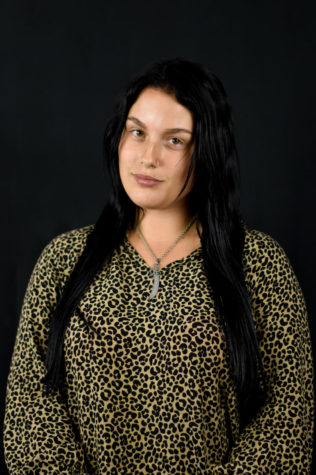
Hello, SHS students! My name is Sarah Bennett, and I am a senior and in my second year of The Journal. I love giving the news and spreading information...


